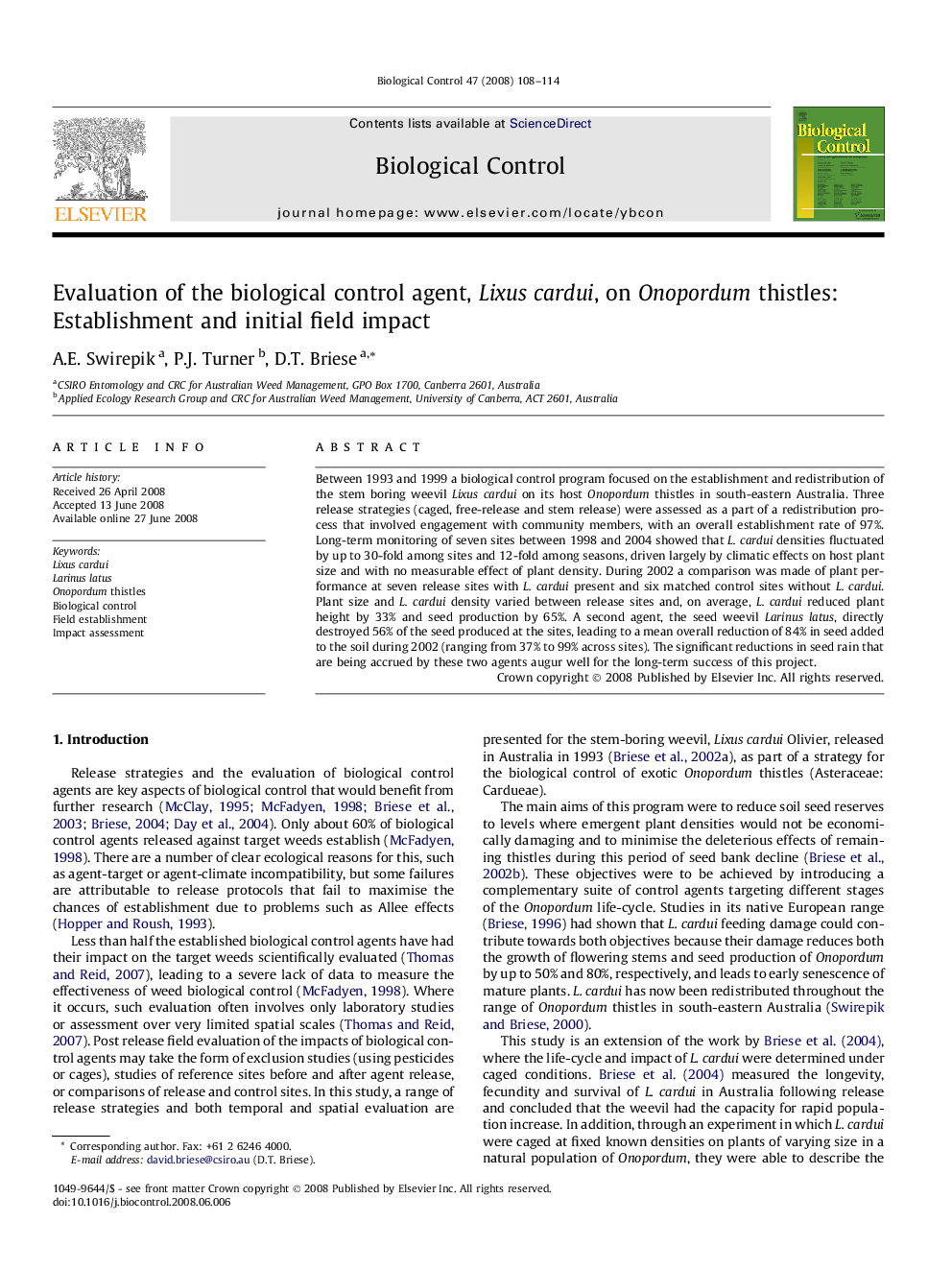| Article ID | Journal | Published Year | Pages | File Type |
|---|---|---|---|---|
| 4504779 | Biological Control | 2008 | 7 Pages |
Between 1993 and 1999 a biological control program focused on the establishment and redistribution of the stem boring weevil Lixus cardui on its host Onopordum thistles in south-eastern Australia. Three release strategies (caged, free-release and stem release) were assessed as a part of a redistribution process that involved engagement with community members, with an overall establishment rate of 97%. Long-term monitoring of seven sites between 1998 and 2004 showed that L. cardui densities fluctuated by up to 30-fold among sites and 12-fold among seasons, driven largely by climatic effects on host plant size and with no measurable effect of plant density. During 2002 a comparison was made of plant performance at seven release sites with L. cardui present and six matched control sites without L. cardui. Plant size and L. cardui density varied between release sites and, on average, L. cardui reduced plant height by 33% and seed production by 65%. A second agent, the seed weevil Larinus latus, directly destroyed 56% of the seed produced at the sites, leading to a mean overall reduction of 84% in seed added to the soil during 2002 (ranging from 37% to 99% across sites). The significant reductions in seed rain that are being accrued by these two agents augur well for the long-term success of this project.
